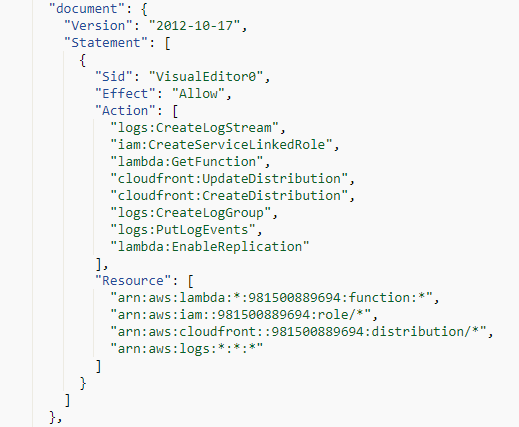Background
I have a big repository that uses CRA React, and I need an SEO Feature in SSR. So I created a new NextJS 13 Repo and put only the page that needed the SEO Feature such as the Landing page in the NextJS. I want to implement an incremental adoption using the rewrite url so the user won’t even notice the migration process.
What do I want to achieve?
I want to do a simple external URL rewrite: https://my-domain.com/company -> https://my-domain-legacy.com/company
Repositories and Infrastructure
So I’m creating an empty NextJS 13 with only index routing and deploying the NextJS with SST.
I’m aware that NextJS provides a rewrites feature, but the external URL rewrite is not supported in SST currently, only the internal URL rewrites is supported.
Question
Do you have any suggestions as to what I can do to achieve what I want? Maybe an alternative to the SST library? Or how I can achieve this in LambdaEdge/CloudFront function?
What I have done so far?
I tried creating a simple internal URL rewrite in the LambdaEdge function:
exports.handler = (event, context, callback) => {
const request = event.Records[0].cf.request;
request.uri = request.uri
.replace(//company$/,'/');
return callback(null, request);
};
But I always get AccessDenied as a result when trying to access a page that isn’t in the NextJS routing.
Edit 1:
Hi Dennis, this is my current function:
exports.handler = (event, context, callback) => {
console.log(event);
const request = event.Records[0].cf.request;
// request.uri = request.uri
// .replace(//company$/,'/');
request.origin.custom.domainName = "https://my-domain-legacy.com"
return callback(null, request);
};
I tried to use the above code for my lambda function, but I get this error.






2
Answers
I have successfully done a rewrite to an external URL (different domain).
This is my lambda@edge function:
reference: https://docs.aws.amazon.com/AmazonCloudFront/latest/DeveloperGuide/lambda-examples.html#lambda-examples-content-based-custom-origin-request-trigger
Double-check the following line in your Lambda@Edge function:
Your current function replaces the path, not the domain.
https://my-domain.com/companybecomeshttps://my-domain.com/, while, according to your question, you want it to behttps://my-domain-legacy.com/company.Having that said, you can implement a proper redirect, including the HTTP code. There’s an example in the AWS Networking & Content Delivery blog.